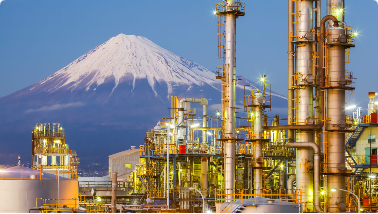On Tuesday, the U.S. Treasury Department announced the signing of a Memorandum of Cooperation (MoC) between the governments of the U.S. and Japan to support “market-oriented, private sector solutions” in infrastructure and energy sector development in the two countries
Per Treasury’s announcement, under the terms of the deal, the U.S. and Japan will work cooperatively to address regulatory, market and legal barriers to private sector investment, develop regional debt markets for energy and infrastructure projects, crowd in institutional investors, enhance liquefied natural gas (LNG) and other commodity trading markets, and boost bilateral infrastructure investment between the United States and Japan.
“The agreement signed today is a testament to our shared commitment to advancing a free and open Indo-Pacific through quality infrastructure investment that ensures openness, transparency, economic efficiency, and debt sustainability,” said Brent McIntosh, U.S. Treasury Under Secretary for International Affairs, who signed the agreement with Japan’s Ministry of Finance Vice Minister for International Affairs Yoshiki Takeuchi.
What exactly does this mean?
Dr. Joshua W. Walker, President and CEO of Japan Society and former Global Head of Strategic Initiatives and Japan for Eurasia Group, told Investable Universe that the agreement marks a “slow, steady progression” of cooperation between the U.S. and Japan in the Indo-Pacific region.
“The free and open Indo-Pacific is a signature Japanese issue, and is a good avenue for this [U.S.] Administration to engage in multilateral activity,” said Walker.
He added that the signing of the MoC is a testament to the diligence with which the Japanese government has been working behind-the-scenes to secure the cooperation of a Presidency that has been openly skeptical—and at times overtly hostile—toward multilateralism.
Overcoming the Trump administration’s reluctance in the name of private sector infrastructure cooperation, Walker says it’s “important not to discount the warm personal relationship” between President Trump and Prime Minister Shinzo Abe.
The agreement is also one that strongly signals to potential regional partners like Malaysia, Indonesia and the Philippines that there is a viable infrastructure development alternative to China’s Belt and Road Initiative, whose funds have come with onerous conditions attached.
According to Walker, Japan is the ideal partner for spearheading investment in the region, due to the structure and resources of their development banks.
Specifically, these are the Japanese-led and heavily Japanese-financed Asian Development Bank, and the Japan Bank for International Cooperation (JBIC), the import-export credit agency of the Japanese government, which has invested heavily in large-scale international M&A, energy infrastructure and tech investment in recent years.
Going to Texas
Walker said the likeliest, most direct beneficiary of Japanese investment in the U.S. will be energy infrastructure projects in the state of Texas, where capacity constraints have been acute, and where directed Japanese investment can help alleviate Japan’s own need for energy resources.
He explained that well-capitalized Japanese investment and manufacturing companies (those affiliated with the Japanese Business Federation, KEIDANREN) already have a strong presence in Houston, and that these familiar Japanese corporate names will likely lead the development charge. These firms will act in close concert with official Japanese government policy and in unison—rather than competition—with each other.
According to Walker, there are likely already specific U.S. earmarks in mind for Japanese investment, and like a swell of recent Japanese investments in the U.S., may be located in regions of traditional allegiance to the Republican Party.
“If you look at recent Japanese private sector investment in the U.S., it is occurring predominantly in red (Republican) states, like Texas, Alabama and Indiana, which is no coincidence,” said Walker.
One recent example: in October, JBIC signed an MoU with the State of Texas to promote Japanese investment in renewable energy, mobility services and disaster risk mitigation in that state. The agreement came one year after JBIC agreed to loan $300 million to Texas Central Rail Holdings to develop a high-speed railway connecting Houston and Dallas.
…Goes both ways
This week’s framework is a reciprocal one, suggesting that private U.S. companies will benefit in equal measure. Per Walker, the MoC is a deliberately worded “open invite” to American companies to enjoy the same proprietary status as Japanese companies in key infrastructure projects across the region.
Walker cited future projects like India’s first bullet train project, in which Japan led a $17 billion investment, or another, recent multi-billion-dollar rail project linking the Indonesian cities of Jakarta and Surabaya, for which the Indonesian government opted to work with Japan rather than China. Under the terms of this week’s agreement, Walker said that U.S. private companies will be able to work alongside Japanese companies on these concessions.
“You don’t sign an agreement like this unless you really want U.S. companies to become involved,” he said.



